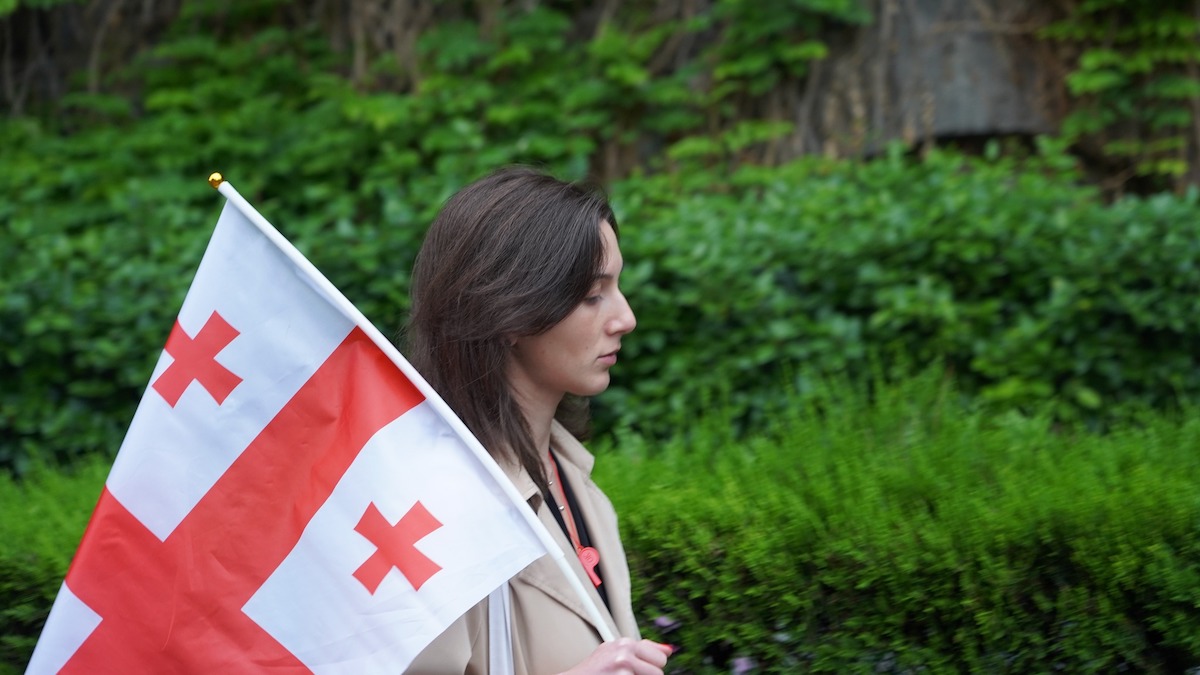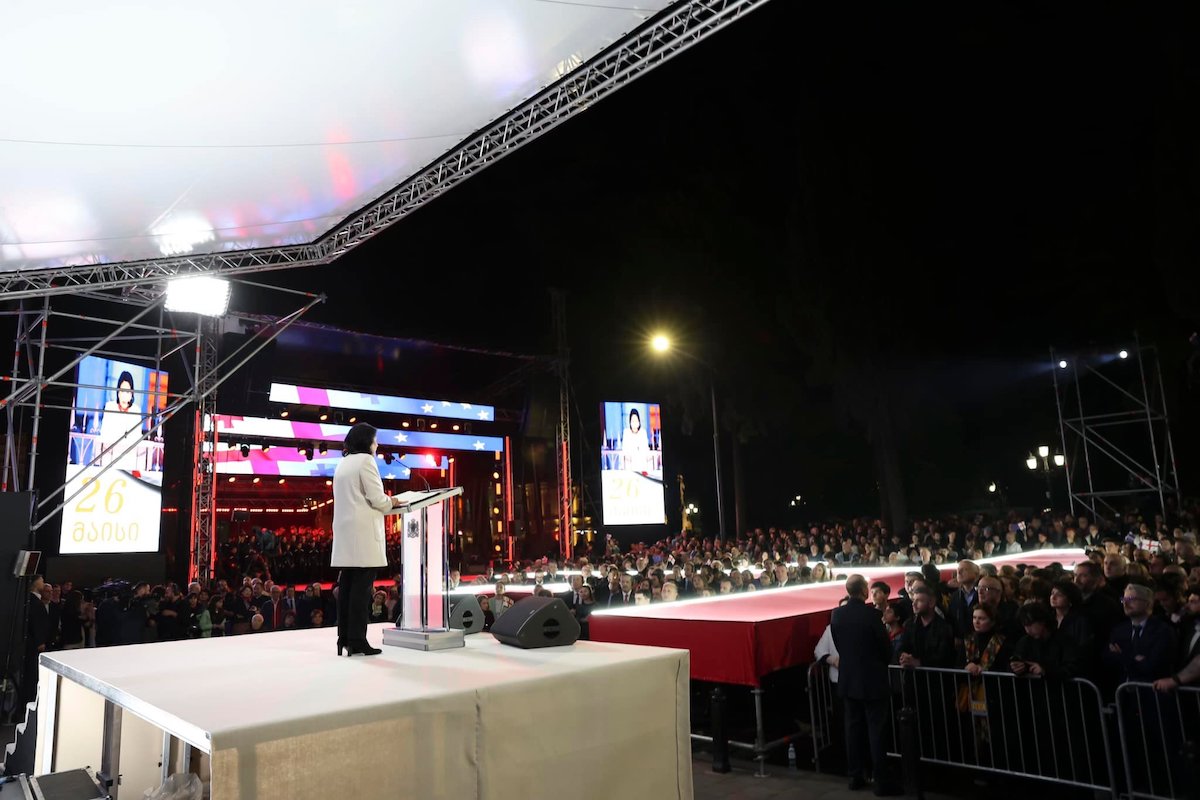How Generation Z found itself at the forefront of Georgian protests: An insight from Tbilisi
Generation Z and Georgian protests

On May 28th, overcoming the presidential veto imposed on the “foreign agents” law, “Georgian Dream” finally approved the law, which became the reason for two months of massive protest rallies, US sanctions, and harsh criticism from the European Union.
At the forefront of the protesters are very young people, or Generation Z, as they are called. To the great surprise of their parents, teachers, and grandparents, they turned out to be not only interested in political processes but also showed astonishing readiness to fight, self-organize, and defend Georgia’s European future.
JAMnews will tell how these “kids” ended up leading the protests.
Morning of May 28. Tbilisi is damp and overcast. It has rained throughout May, with an unusual chill for this season.
By 10:00 AM, activists began gathering near the parliament building. Wrapped in Georgian and EU flags, carrying vuvuzelas and whistles, handmade posters, and wearing colorful raincoats, they came in groups and individually.
“I couldn’t sleep at all last night. Are they really going to do this? How can they just sell their country’s future like this?” said 23-year-old Ana Dvali, a sociology student at Tbilisi State University, earlier in the morning, before the parliament unanimously overrode the president’s veto on the foreign agents law on May 28.
For several weeks now, Ana and her classmates have not attended classes; their mission has been to participate in protests.
“My parents were part of the historic protests in 1989 when Georgia fought for its independence. They told me about April 9, about the gas and batons. I listened to these stories like ancient chronicles. I never imagined that years later, I too would have to defend my country’s independence,” Ana said.
Generation Z: Who are they?
According to Wikipedia and scientific literature, they are people born between 1997 and 2012.
American theorists Neil Howe and William Strauss first referred to them as Generation Z, or Gen Z, in their 1991 book Generations.
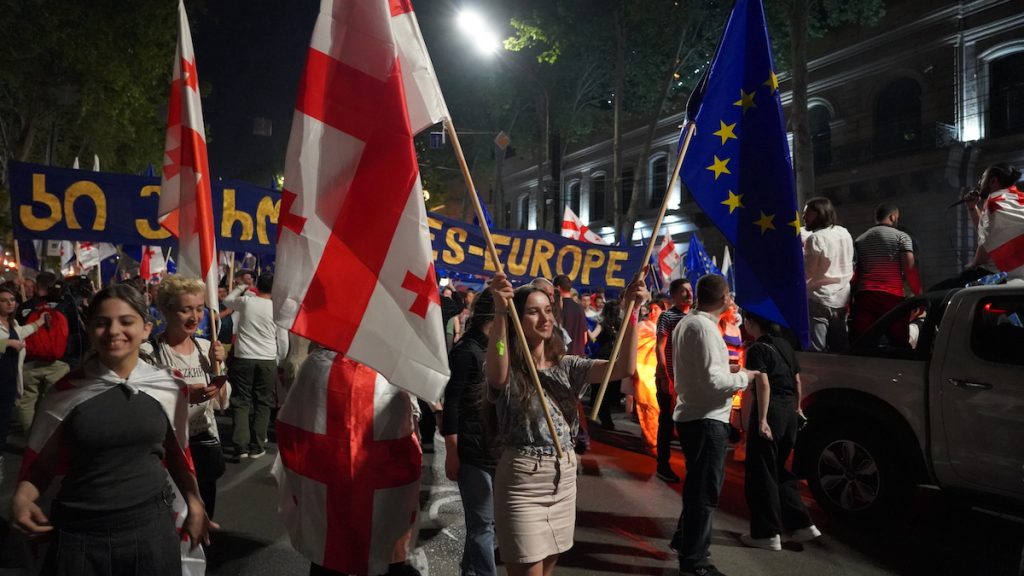
Mariam Dalakishvili, a sociologist and associate professor at Ilia University, explains that a generation is defined not only by age but also by the common social, cultural, and historical environment in which a particular group of people grows up.
“Their common experience is shaped by the pace of change. What makes a generation is the shared experience gained and accumulated during upbringing and growth.”
According to her, when analyzing Generation Z, it is important to consider the local context. In the case of Georgia, this is a generation that grew up in a peaceful environment. What distinguishes them from their predecessors is that they lack the experience of the dark and hungry 1990s, wars, and devastation.
“Generation Z is free from many of the traumas experienced by their direct predecessors, the Millennials. Unlike them, Generation Z grew up in a safe environment. Consequently, this experience makes them bolder, more playful, and stubborn in a good way.”
This generation first came to attention as an interesting social phenomenon a year ago when the Georgian government initiated the “foreign agents” law.
This was perceived as a signal that Georgia was moving away from its European path, and tens of thousands of people, many of them young, took to the streets of Tbilisi.
Street protests are nothing new for Georgia. In the 33 years of its independence, there have been hundreds of protests, permanent rallies, and revolutions on the country’s main square, but the protests of 2023 were something entirely new in both content and form.
Young people did not disperse when the special forces used tear gas, pepper spray, and water cannons. Instead, they armed themselves and returned with special goggles, respirators, gloves, helmets, and saline solution for eye washing.
They danced to the sound of sirens and stood in front of the special forces. Despite this playful mood, the young people last year did not avoid setting a police car on fire and breaking several windows in the parliament building.
A girl in red sweatpants, dancing deftly under the water cannon spray, became one of the main symbols of the protest.
It was then that Georgia closely recognized its new generation as very brave and unyielding.
“They gave the protest a new form,” says Mariam Dalakishvili. “We Millennials would have acted more cautiously if a water jet was aimed at us, based on our past traumas. But Generation Z jumps and starts to play with it.”
The same story continues this year. Generation Z is again on the streets, armed with goggles, gas masks, and saline solution. This gear has become a kind of symbol of street protests, and this year, due to the rainy spring, colorful raincoats have been added.
Unlike last year, the protest in 2024 has become much larger, extending beyond the streets and into classrooms. Most students at most universities are ready to strike until “Georgian Dream” repeals the “foreign agents” law.
“This generation has no authorities whose instructions they would follow unquestioningly,” says sociologist Iago Kachkachishvili. “They only recognize horizontal, equal relationships and boldly demand what belongs to them by law.”
“Their sources of information are not just adults or those in power over them. This is a digital generation, born in the age of technology, capable of obtaining information independently,” says Dalakishvili.
Digital citizens in colorful raincoats
70-year-old Marina Kvanchilashvili has been teaching mathematics at the 53rd Public school for over 30 years.
She has taught Generation X (1965-1980), Millennials (1981-1996), and now Generation Z.
“Each generation has its own characteristics, and each new generation always brings its own innovations.”
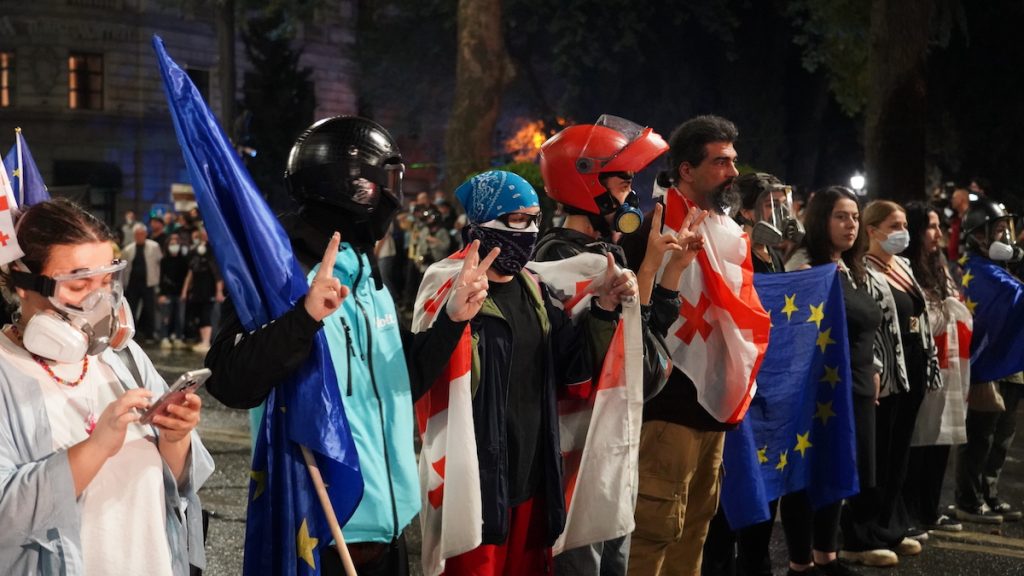
Generation Z is characterized by Marina Kvanchilashvili as an exceptionally clever generation.
“Everything is done very quickly. For example, if they want to go on an excursion. In the past, we had to call a parents’ meeting, then they had to find out about the bus, and then they needed to buy food. Now, kids decide to go on an excursion, and within half an hour, everything is ready: the place is chosen, the bus is booked, and the food is arranged. They are very determined and solve everything easily.”
According to her, this generation is very warm, loyal, and loving in relationships.
“They are also big fans of order. They don’t fight with each other, don’t break the rules, and don’t arrive late to class—unlike their predecessors… If I call someone to the board several times in a row, they will straightforwardly ask, ‘Why are you picking on me?’ They consider everyone equal, and if they don’t like something, they feel they must express it.”
In Marina Kvanchilashvili’s opinion, there is no point in opposing or prohibiting anything from Generation Z.
“An eighth-grader will confidently tell you which university they will get their bachelor’s degree from, which country they will apply to for their master’s, and when they will return. They have their own plan—they want to study in Europe, and no one should stand in their way.”
“Daithove”
The determination of the new generation is also evident in the street protests. For over a month now, alongside large rallies, small groups have been blocking Rustaveli Avenue and marching through various parts of the city.
Their actions have spread the protest throughout the city. For instance, if you live in a residential area, you might suddenly see a demonstration with hundreds of protesters outside your window, chanting “Sakartvelo,” [Georgia] “Ara rusul kanons,” [No to “Russian law”] blowing whistles, and shouting. This process, called “waking the sleepers,” is something Generation Z is keen on.
The main place for self-organization is a Facebook group called “Daithove” (“Stay at my place”). It was created in April, right after the protests began, and now has over 190,000 members.
Originally, the group was created to help people from the regions who wanted to come to the protests in Tbilisi. Here, they offered accommodation, paid for transportation, organized transport, and provided food. Some even offered to pay for several buses.
In the group, you can read many touching posts, such as how someone’s grandmother baked lobiani and khachapuri for the protesters, which would be distributed at the rallies, or a post thanking a taxi driver who gave a free ride to the protest and to volunteers handing out masks and saline solution.
Arrests and trials
According to Ministry of Internal Affairs statistics, over 200 people have been arrested since April 15 for participating in the protests. For many members of Generation Z, this is their first encounter with the law.
One of them, 24-year-old actress Natalia Kipshidze, was fined 500 lari (about $180) by a judge on May 28. Law enforcement accused her of illegally blocking the road in front of the parliament on April 24.
Natalia’s first shock was when she received a call summoning her for questioning. She went to court accompanied by her mother and father.
“My mom even dressed up very nicely—after all, it’s not every day your daughter is on trial,” Natalia laughs.
She comes from a well-known acting family—her grandfather and father, actors Zurab and Giorgi Kipshidze, have long been supporters of the authorities and have backed “Georgian Dream” in all previous elections. They also supported “Georgian Dream” when it initiated the “foreign agents” law. However, the trial of their daughter was a turning point:
“Have you completely lost your minds? You summoned Natalia to court for participating in a protest? Why do you need a law that allows you to persecute and try children?” Natalia’s father, Giorgi Kipshidze, stated in a video message.
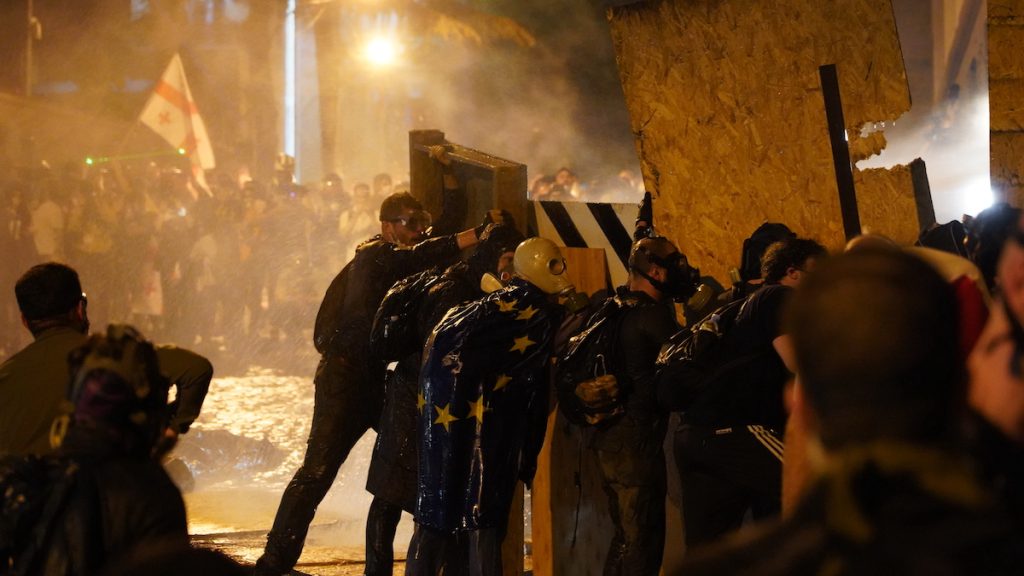
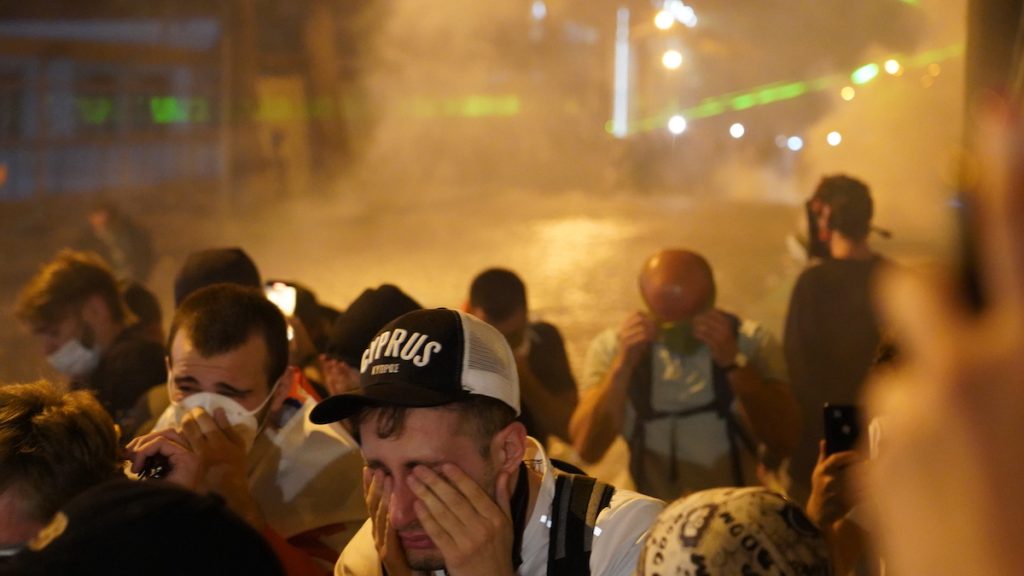
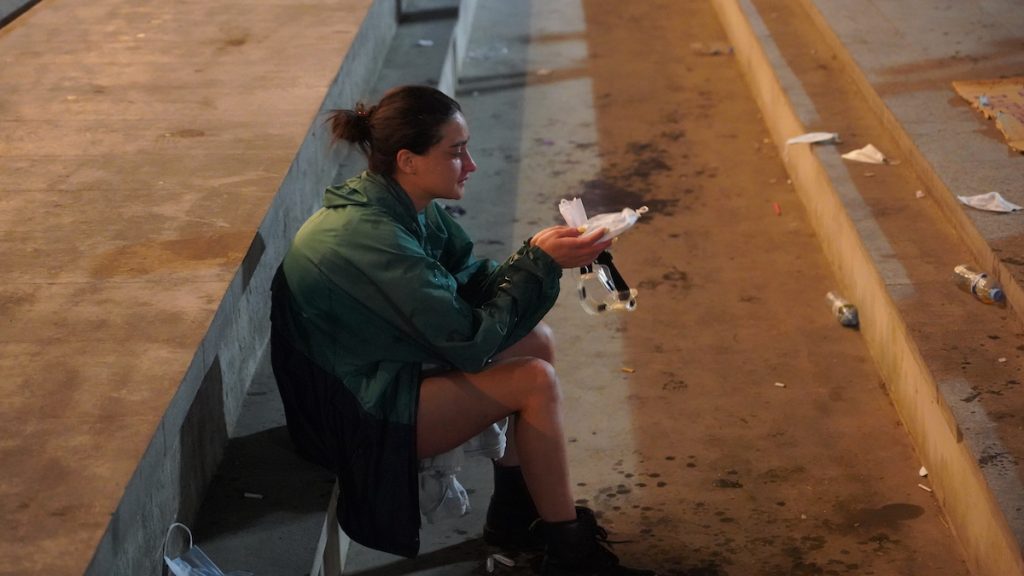
Generational struggle
Twenty-four-year-old Sofio has been protesting against the “foreign agents” law for the past two years, but she has yet to convince her father, who supports the government’s stance.
Every morning, Sofio reads the news from the pro-government TV channels “Imedi” and POSTV to understand the current government narratives and be prepared to respond when her father calls.
“For a long time, I tried not to talk to him about it. There’s no point. He gets so angry that he doesn’t let me finish the sentence. He’s a classic victim of pro-government TV channels, repeating exactly what he hears from them.”
“Pro-government media publish videos taken out of context and label us as a ‘violent group’ controlled by the ‘National Movement’ [the former ruling party founded by Saakashvili]. My father listens to all this and talks to me using the same messages.”
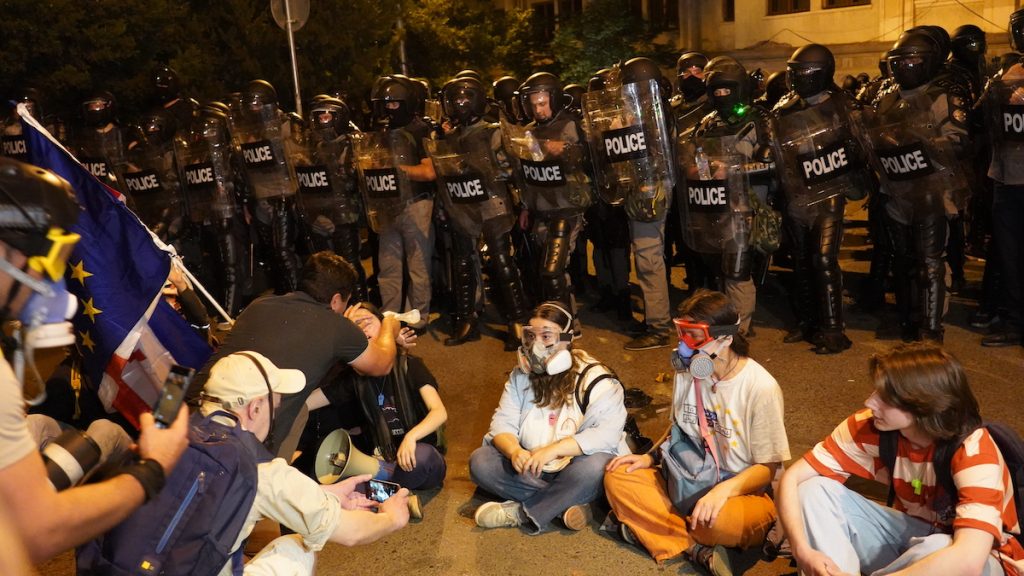
Sopho recounts her efforts to explain to her father that her participation in demonstrations is also for his future.
“I love my father. I want my parents to enjoy a dignified old age, akin to that in Europe, rather than in Russia.”
Sopho mentions that she meticulously studied the “foreign agents” bill, researched its implications, and consulted legal experts.
“Is love for Georgia merely affection for its land and traditional dance? Love for Georgia encompasses love for its people and the aspiration for them to thrive in a prosperous country. Having witnessed the living standards of elderly Europeans and those of Georgian pensioners, I refuse to abandon the welfare of our parents’ generation. My activism is fueled by this desire.”
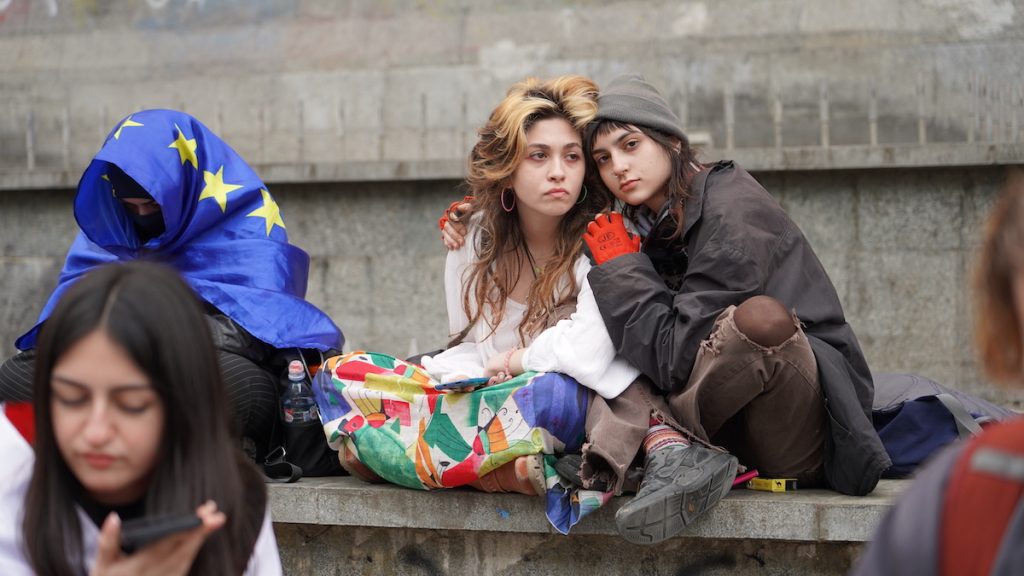
“The alleged violent group”
Prime minister Irakli Kobakhidze himself labeled the younger generation as a “violent group.”
“Georgian Dream” and pro-government media actively seek to discredit the youth involved in resistance, attempting to associate them with the previous regime.
“The responsibility lies with all entities that romanticized violence over the past year, branding members of aggressive youth groups linked to the ‘National Movement’ as sincere young individuals. These youth organizations, including ‘Gen Z,’ consist of approximately 200 aggressive young people. I urge all citizens to distance themselves from the violent actions of these groups, which are driven solely by narrow-party and anti-state motives,” stated Kobakhidze.
The sociologist Iago Kachkachishvili believes that today’s younger generation has mentally outpaced the older generation and now sets cultural standards that the older generation should adopt, not the other way around.
“This generation lives in the realm of digital technologies. They have instant access to information. Consequently, they quickly organize collective practices, such as meetings, rallies, and so on.”
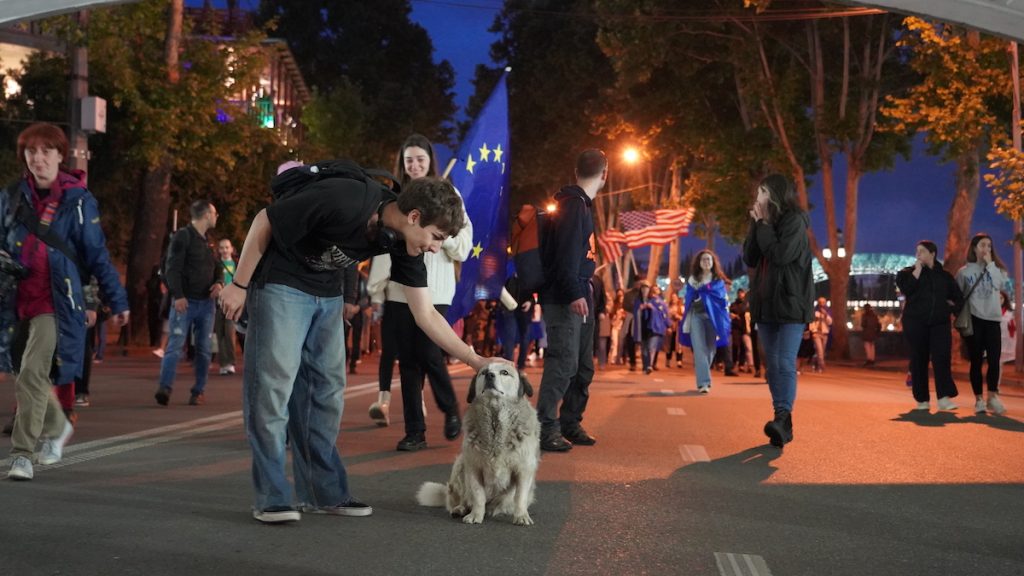
“At the same time, this educated generation is well aware of what is happening in the world and also knows Vazha-Pshavela [Georgian poet and writer]. They love their country, but they are not nationalists. If previous generations were accustomed to a certain reverence towards the older generation, Generation Z does not have this. They respect based on merits, not because of age”.
*With the support of Medianetwork










